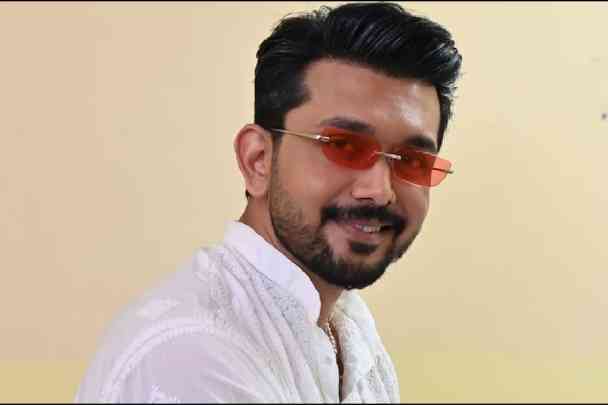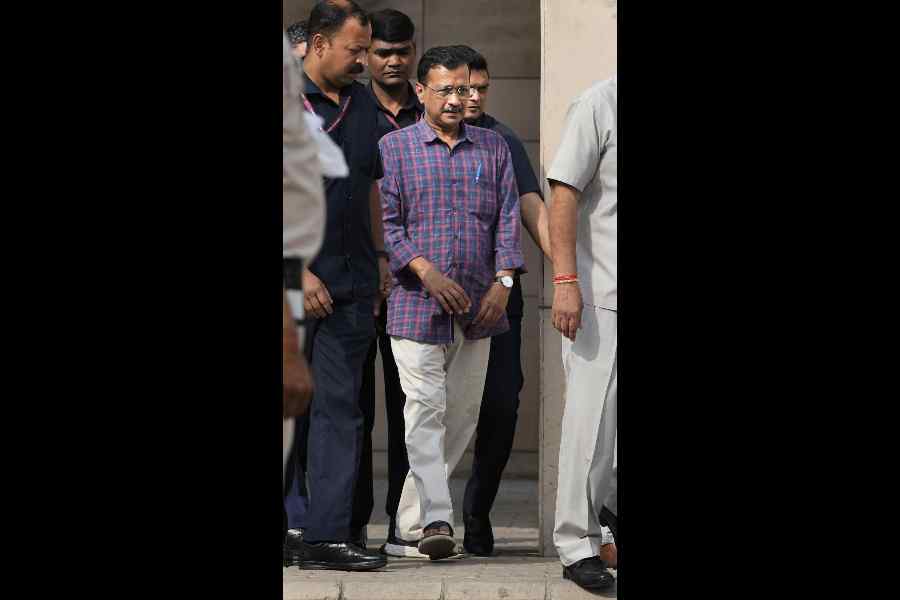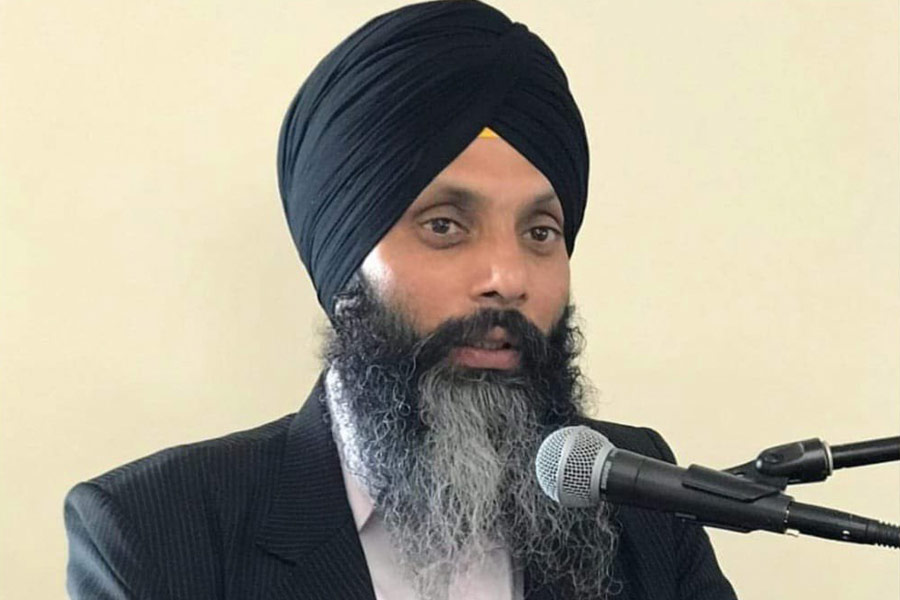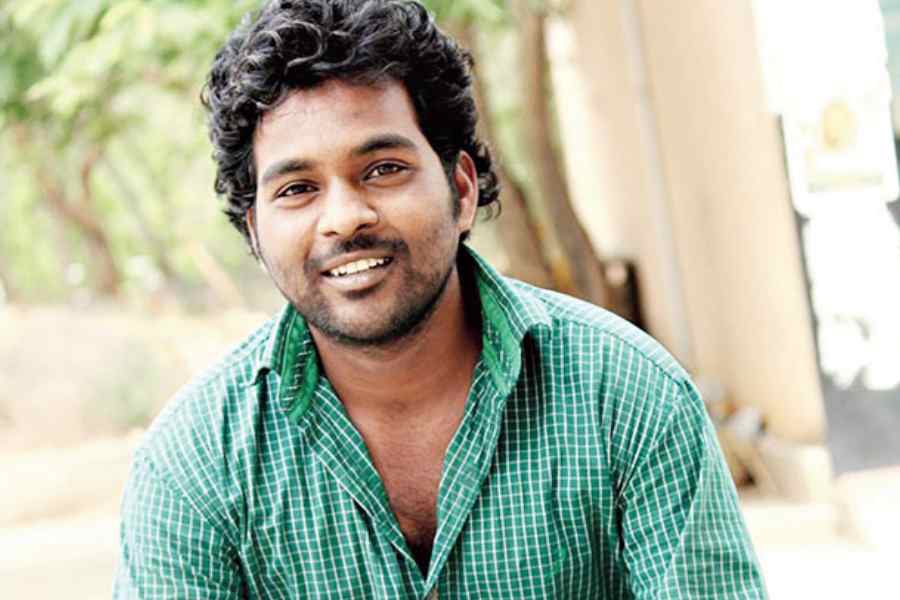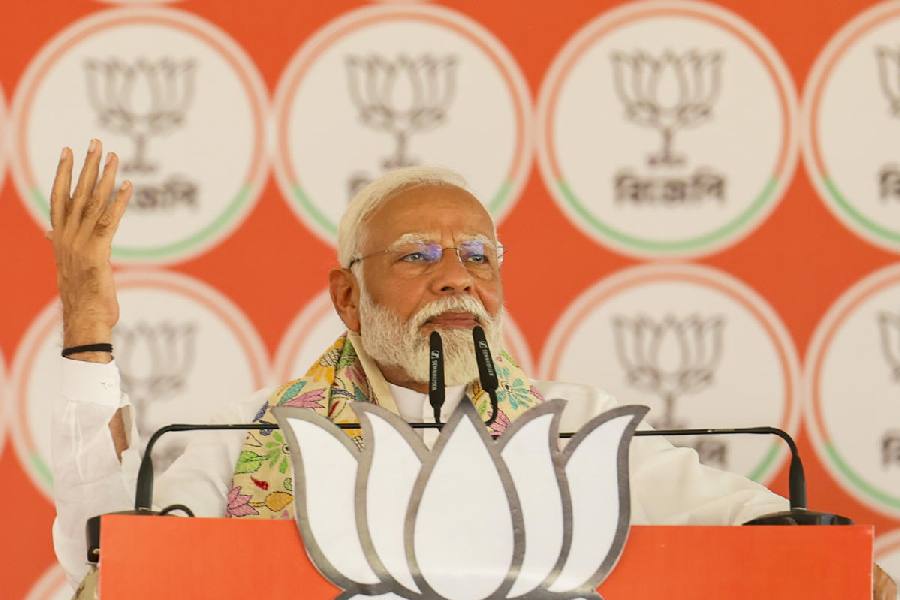Mujib: The Making of a Nation chronicles the life and times and extraordinary grit of Sheikh Mujibur Rahman, the first president of Bangladesh, who was popularly known as 'Bangabandhu'. Directed by veteran filmmaker Shyam Benegal, the Indo-Bangladeshi joint production is now playing in theatres and stars Bangladeshi actor Arifin Shuvoo in the title role. Prior to a special screening of Mujib at Cinepolis: Acropolis Mall last week, t2 chatted with Arifin on the process and prep of becoming Mujibur Rahman.
Mujib released in Bangladesh in early October. What's the reception been like so far?
The biggest moment for me was when his (Sheikh Mujibur Rahman's) daughter (Prime Minister Sheikh Hasina) asked me: 'How did you do this?' If I have to put it in my language, then what she actually meant was: 'How on earth did you manage to do this?!' (Smiles) Among those from the family who have survived, she and her sister (Sheikh Rehana) are the only ones who have seen their father from such close quarters.
How did Mujib happen to you?
I was asked to go and meet Mr Shyam Benegal. It was a casual meeting and then he asked me if I was up for auditioning. I was like: 'Sir, of course! I will do anything for you (smiles). I auditioned five times. Tar poreo kichhu boleni (smiles). I was told that I was selected for the role much later. This happened before the pandemic.
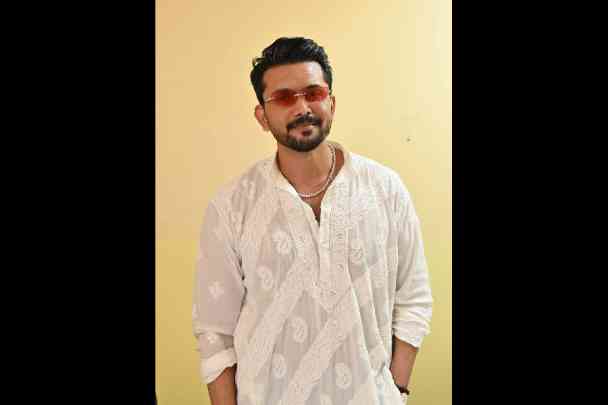
Arifin Shuvoo at the interaction with t2 at Cinepolis: Acropolis Mall
It's been almost four years now since that day. I still can't process that I have actually done this part. All those workshops, the preparation and the shoot remain a blur to me, but I must say that they are a happy blur. Honestly, this is not something that one gets to do every day. Playing a character like Sheikh Mujibur Rahman is a once-in-a-lifetime opportunity.
Would you say that this has been your most challenging part yet?
So far, it definitely has been the most challenging. In an acting career of 16-17 years, I would place this role at the top of the list.
The journey of the character starts in college and ends in 1975 when he was assassinated. It encapsulates more than 90 per cent of his life. To portray different body language, different tonal shifts and vocal changes during the different ages of the character was challenging and also creatively satisfying. It couldn't be a drastic shift or change, it had to be subtle and gradual and managing that consistently was tough.
What was the experience of being directed by Shyam Benegal like?
I had an incredible journey with Benegal sir and the whole team. What was also memorable were the workshops I did with the Prime Minister and her family. In every other film, if it's a five-minute scene, you do a few lines and then 'cut' is called. Then we do six lines, followed by cut, and then 10 lines and then cut, and so on. Shyam Benegal is the kind of filmmaker who may ask an actor to do a scene 500 times and for those 500 times, you have to do the whole scene from A to Z. There is no cut. If there is a fumble in the last line of a 10-page scene, you have no choice but to redo it from the beginning (smiles). It's like theatre. This was hugely challenging and pressurising for me, possibly the maximum that I have been pushed to.
It was like sitting in an oven (laughs). It felt like a boot camp session to me. Especially where I had to do Mujibur Rahman's speech of January 10 (the speech in 1972 where he spoke about never being defeated) and of March 7 (the 19-minute speech in 1971 where two million people gathered to hear him informally declare the independence of Bangladesh from Pakistan). These are speeches running into pages and pages, and I had to do them in one take.
Anyone who has worked with Mr Benegal knows about this. Just yesterday, I was talking to Naseer saab (Naseeruddin Shah) and he laughed and said that he has also experienced it.
But then I got to learn so many aspects of the character, and undoubtedly, it enriched my toota-phoota acting capability a lot (smiles). It made me believe I could do much more than flirt with heroines on screen and fight with villains.
That's also an essential part of what you do...
Yes, right. But now I feel that I want to explore more as an actor. I want to try different roles.
What was your understanding of Mujibur Rahman, a man who shaped the history of Bangladesh and also contributed to subcontinental politics, before you played him in this film and how has it changed now?
I will tell you a story, which I feel will be the easiest way to answer your question. One part of the workshops that I did involved the presence of Colonel Sajjad (a veteran of the Bangladesh Liberation War of 1971). He was very young at that time, but he was pretty close to Sheikh Mujibur Rahman. I went to Dhanmondi 32 (also known as Bangabandhu Bhaban in Dhaka, which was the residence of Sheikh Mujibur Rahman) for the first day of the workshop. I had been there before. So I went in thinking that since it's a museum now, they would show me certain things about history, the kind usually found in museums.
However, he didn't do that. He took me to the main road and asked me to track the time on my watch. We walked from the main road to the living room of Mujibur Rahman's residence and he asked me to check how long it took. It was about 20 seconds long. The stairs on which his assassination took place have now become part of the museum. We walked and went to the front of his bedroom. Colonel Sajjad asked me how much time we had taken and I realised it hadn't even been a minute. Colonel Sajjad told me that Indira Gandhi had called Mujibur Rahman herself, she had even sent people to tell him that his life was in danger, that there was a conspiracy going on and that he should shift to Ganabhaban (the official residence of the Prime Minister of Bangladesh). He knew that it took less than a minute to reach from the main road to his bedroom and yet he did not leave. He said: 'Pakistan amake maarte paare ni, amaar Bangali-ra ki kore maarbe amake?'
The gravitas, the courage and the spirit of this man were unlike any other. This one story was good enough for me to understand him and his psyche. He never believed that his own people could kill him. And look what happened... they not only assassinated him but practically wiped out his whole family.
What did your interactions with Prime Minister Sheikh Hasina involve, especially in understanding what her father was like?
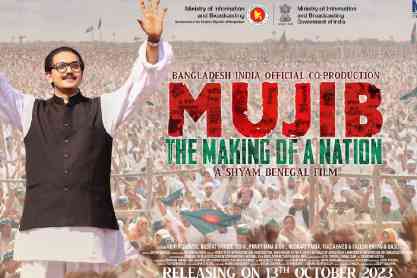
Arifin as Sheikh Mujibur Rehman in Mujib
We had multiple interactions and workshops with her. The whole script was approved by her. She went through each and every line and made a lot of corrections. This story belongs not only to (writers) Atul Tiwari and Shama Zaidi, but it also belongs to our Prime Minister who helped frame and rework a lot of scenes and situations in the script.
What is the film scene in Bangladesh like right now?
It is flourishing. All these months, it's been about Hawa (the much-feted 2022 film starring Chanchal Chowdhury). After this film releases, I think it will all be about Mujib.

